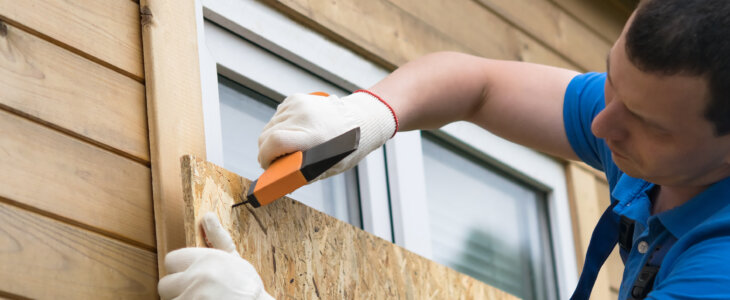As Floridians, we’re no strangers to the threat of hurricanes. Each year, from June to November, we face the possibility of these powerful storms. While we can’t control the weather, we can certainly control how prepared we are when a hurricane approaches.
Preparing is about more than stocking up on bottled water and batteries. It’s about having a comprehensive plan that ensures your safety, your family’s, and your property’s safety. This is especially essential given that different areas of Florida and even Coral Springs may face varying levels of risk and require specific preparations.
Whether you’re a long-time resident new to our coastal paradise or live by the shore or further inland, this guide will help you understand exactly what to do before a hurricane strikes. We’ll cover general preparedness tips applicable to all Floridians and specific considerations for those living in coastal areas versus more inland locations. Tomlinson Law Group wants you to be prepared and protected.
General Hurricane Preparedness
Regardless of where you live in Florida, there are several essential steps everyone should take to prepare for a hurricane:
Create an emergency plan
- Develop a family communication plan, including an out-of-area contact
- Identify a safe room in your home for riding out the storm
- Plan for family members with special needs or medical conditions
- Don’t forget to include pets in your plan
Assemble a hurricane kit
- Stock at least a seven-day supply of non-perishable food and water (gallon per person per day)
- Include a battery-powered or hand-crank radio
- Pack flashlights and extra batteries
- First aid kit and prescription medications
- Cell phone with chargers and backup battery
Secure important documents
- Place vital records in a waterproof, portable container
- Include identification, insurance policies, bank records, and medical information
- Consider making digital copies and storing them securely online
Stay informed about weather updates
- Have multiple ways to receive emergency alerts and warnings
- Follow local news and weather channels
- Download reliable weather apps on your smartphone
- Be familiar with hurricane watch and warning definitions
By taking these general preparedness steps, you’ll lay a solid foundation for hurricane readiness. Remember, it’s always better to be over-prepared than caught off guard when a storm is approaching. In the following sections, we’ll get into more specific preparations based on your location in Florida.
Preparing Your Home
Your home is likely your most valuable asset, and protecting it from hurricane damage is important. Here are key steps to prepare your home:
- Inspect and reinforce your roof
- Install storm shutters or board up windows
- Trim trees and secure outdoor objects
- Check and clean gutters and downspouts
- Reinforce garage doors
- Review your home’s weak points
- Prepare for potential flooding
These preparations should ideally be done well before hurricane season or at the very beginning. Be sure to start these tasks before a storm is approaching. These steps will significantly improve your home’s ability to withstand a hurricane’s fury.
Coastal Residents: Special Considerations
If you live near the coast, you face unique challenges during hurricanes. Here are specific preparations for coastal residents:
- Understand your flood risk and evacuation zone: Know your property’s elevation above sea level and identify which evacuation zone you’re in.
- Prepare for storm surge and flooding: Have a supply of sandbags ready, elevate your water heater and electric panel, and be prepared to turn off electricity at your main breaker if flooding occurs.
- Have a boat or watercraft plan: If possible, remove boats from the water and store them inland. Remove or secure all removable items from your boat, and ensure your boat insurance is current.
- Reinforce doors and windows facing the water: If you don’t have any hurricane windows, consider buying them. Also, extra bracing materials should be on hand for doors facing the water.
- Be ready for extended power outages: Coastal areas often lose power first and have it restored last.
- Plan for potential isolation: Roads to coastal areas may be impassable after the storm. Stock up on supplies for at least two weeks and have a way to purify water.
Remember, as a coastal resident, you’re in a particularly vulnerable area. Always err on the side of caution and be prepared to evacuate if ordered. Your safety is the most important thing. Things can be replaced, but you can’t.
Evacuation Preparedness
When a hurricane threatens, you may be ordered to evacuate. Being prepared for evacuation is crucial for your safety and peace of mind. Here’s how to get ready:
- Know your evacuation route: Have multiple options if one route becomes impassable.
- Prepare an evacuation kit: Pack essentials for at least three to seven days. Be sure to include bedding, toiletries, and nonperishable food and water. Also, bring cash, as ATMs and credit card machines are unlikely to function. Lastly, don’t forget essential documents in a waterproof container.
- Plan for pets and special needs family members: Find pet-friendly shelters along your route, and pack enough food and water for them. Pack all necessary equipment and supplies for special needs family members, and inform your local emergency management office if you need special assistance.
- Prepare your vehicle: Keep your gas tank at least half full, and consider keeping a full gas can in case of an emergency. Pack an emergency kit for your vehicle with jumper cables, tools, and a flashlight.
- Secure your home before leaving: Unplug appliances and electronics, lock all doors and windows, and let friends and family know your evacuation plans and destination.
- Have a return plan: You may not be able to return immediately, so have enough supplies to last several days and check official media channels for the okay to return home.
Protecting Homeowners’ Rights in Hurricane-Prone Florida
At Tomlinson Law Group, we understand the stress and fear involved in hurricane prep. Our team is committed to protecting your rights and interests before, during, and after a storm. Our law group can help in multiple ways. We can help you create an emergency plan, understand the unique risks you may face based on location, and review your insurance coverage.
It’s important to recognize that each hurricane is unique, and even long-time Florida residents should never become complacent. Stay informed, follow the guidance of local officials, and always prioritize the safety of you and your loved ones over material possessions. Call us today for more information and assistance.


